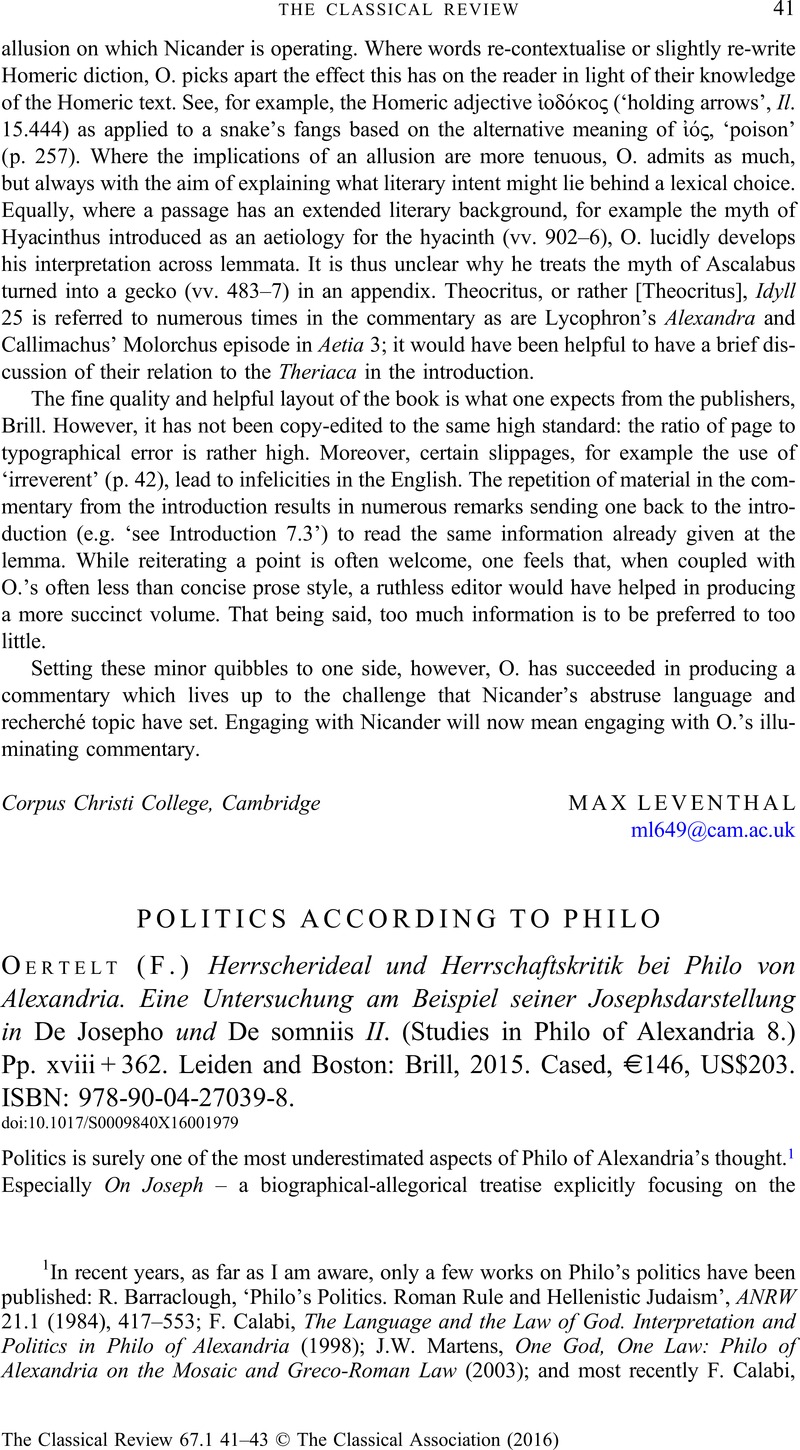No CrossRef data available.
Published online by Cambridge University Press: 03 October 2016

1 In recent years, as far as I am aware, only a few works on Philo's politics have been published: Barraclough, R., ‘Philo's Politics. Roman Rule and Hellenistic Judaism’, ANRW 21.1 (1984), 417–553 Google Scholar; F. Calabi, The Language and the Law of God. Interpretation and Politics in Philo of Alexandria (1998); J.W. Martens, One God, One Law: Philo of Alexandria on the Mosaic and Greco-Roman Law (2003); and most recently F. Calabi, O. Munnich, G. Reydams-Schils, E. Vimercati (edd.), Pouvoir et Puissances chez Philon d'Alexandrie (2016).
2 The most prominent example is E.R. Goodenough, The Politics of Philo Judaeus: Practice and Theory (1938). O. very clearly shows the limits of such an interpretation, e.g. in her examination of On Dreams 2.80–125 (pp. 239–43), where she plausibly argues that Philo's critique of ‘tyranny’ cannot be directed towards any historical figure nor in general towards any Roman praefectus.
3 In doing so she explicitly follows M. Böhm, Rezeption und Funktion der Vätererzählungen bei Philo von Alexandria. Zum Zusammenhang von Kontext, Hermeneutik und Exegese im frühen Judentum (2005), who emphasises that Philo interprets all biblical figures, with the exception of Abraham, Isaac and Jacob, in positive or negative terms according to the exegetical context in which they are examined.